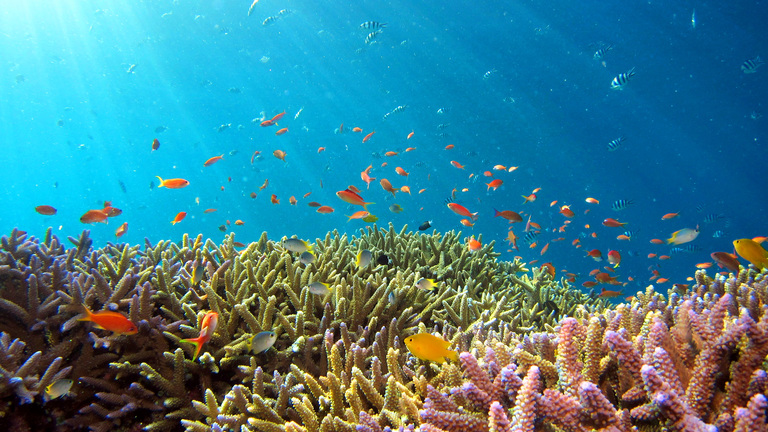The Impact of Climate Change on Marine Ecosystems

By Lindah Kiyeng
Climate change is one of the most pressing challenges of our time, with profound implications for marine ecosystems. Rising temperatures, ocean acidification, and shifting currents are altering the delicate balance of life in our oceans. These changes not only threaten marine biodiversity but also impact the livelihoods and food security of millions of people worldwide.
Rising Sea Temperatures
One of the most immediate effects of climate change is the increase in sea surface temperatures. Warmer waters lead to coral bleaching, a phenomenon where corals expel the algae (zooxanthellae) that provide them with color and nutrients. This process weakens coral reefs, which serve as crucial habitats for diverse marine species. Bleached reefs are less resilient and more susceptible to disease, ultimately leading to their decline. The loss of coral reefs can disrupt entire marine ecosystems, as many fish and invertebrates rely on them for shelter and food.

Ocean Acidification
As CO2 levels in the atmosphere rise, the oceans absorb a significant portion of this carbon dioxide, leading to ocean acidification. This chemical change reduces the availability of carbonate ions, essential for the formation of shells and skeletons in marine organisms such as shellfish, corals, and some plankton species. Acidification can have cascading effects throughout the food web, impacting species diversity and the overall health of marine ecosystems.
Altered Ocean Currents and Migration Patterns
Climate change is also influencing ocean currents, which play a critical role in regulating marine ecosystems. Changes in current patterns can affect nutrient distribution and temperature gradients, impacting the productivity of phytoplankton— the foundation of the marine food web. Furthermore, many fish species rely on specific temperature ranges for spawning and migration. As these conditions change, fish populations may shift to new areas, leading to conflicts over fishing rights and threatening the livelihoods of communities that depend on these resources.
Threats to Marine Species
Climate change is particularly threatening to vulnerable marine species, including those already facing pressures from overfishing, habitat loss, and pollution. Species such as sea turtles, polar bears, and certain fish populations are at risk of extinction as their habitats change or shrink. Additionally, invasive species, which thrive in altered conditions, can further threaten native species and disrupt established ecosystems.
Socioeconomic Implications
The impact of climate change on marine ecosystems extends beyond environmental concerns. Many coastal communities rely on fisheries and tourism for their economic stability. Decreased fish stocks and damaged coral reefs can lead to job losses and reduced food security, disproportionately affecting vulnerable populations. Sustainable management practices and adaptive strategies are crucial to mitigate these impacts and support communities in transition.
Conclusion
The effects of climate change on marine ecosystems are profound and multifaceted. As ocean temperatures rise, acidification increases, and ecosystems shift, the need for urgent action becomes more critical than ever. Protecting marine biodiversity through conservation efforts, sustainable fisheries management, and international cooperation is essential for preserving the health of our oceans and the communities that depend on them. Addressing climate change is not just an environmental imperative; it is vital for the future of humanity and the planet.


